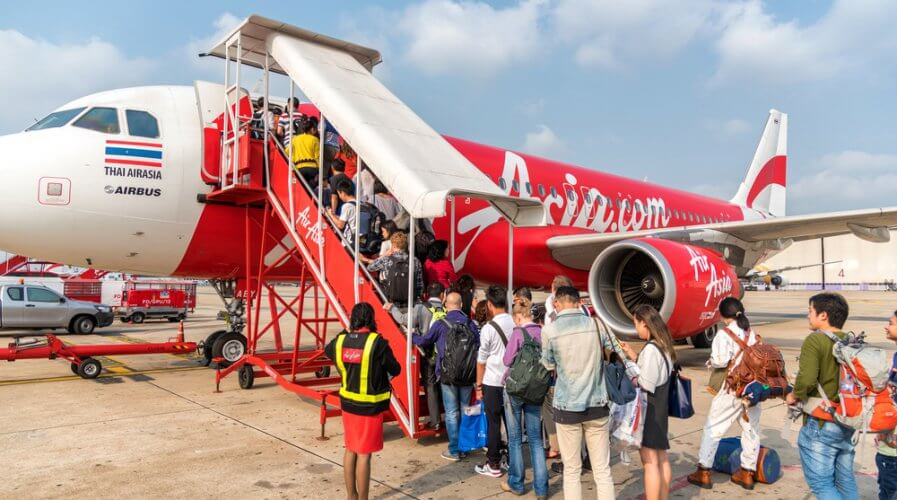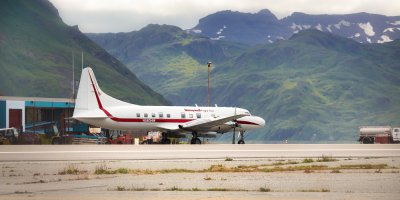
Airlines that leverage data and digital solutions can provide a great experience to customers. Source: Shutterstock
IATA says digital transformation to help deliver a better CX
DELIVERING a good customer experience (CX) is critical for stakeholders in the aviation industry.
It’s why the International Air Transport Association (IATA) has been urging aviation stakeholders to embrace data and digital transformation for a long time now, including at a recent symposium.
“We must transform paper-based and legacy processes into digital ones and use data to drive decision-making in all facets of our business,” said IATA Director General and CEO Alexandre de Juniac.
“Organizational silos will need to be shed to ensure a holistic focus on the entire customer experience. And we will need to do all this while continuing to ensure the highest levels of safety, security and environmental sustainability”
In the APAC, the IATA’s message has been understood loud and clear, with low-cost airlines such as Air Asia and full-service premium airlines such as Singapore Airlines offering incredible digital solutions.
Singapore Airlines is actually quite far along the digital transformation curve with the organization establishing a digital innovation lab to build collaborative partnerships with other organizations in the country.
Among those that Singapore Airline is partnering with are the Agency for Science, Technology, and Research (A*STAR) and the National University of Singapore (NUS), together with support from the Civil Aviation Authority of Singapore (CAAS) and the Economic Development Board (EDB).
IATA: Three building blocks of digital success
While a number of airlines in the APAC have achieved success with digital programs, there are still a few that are struggling to balance short-term revenue interests with a long-term focus on data and digital transformation.
To help these aviation stakeholders, IATA’s de Juniac has suggested focusing on three building blocks of digital success:
# 1 | Develop core data science capabilities
“The statistics tell us that despite yearly fluctuations, the long-term trend is toward improving safety. Nevertheless, we must intensify our efforts to ensure the accident rate remains disconnected from the expected doubling in air traffic demand over the next 20 years. Greater use of data will be critical to these efforts,” said de Juniac.
The IATA CEO also discussed the Turbulence Aware initiative that the body has been working on recently and pointed out that the program has been able to help airlines avoid turbulence, resulting in a decline in turbulence-related injuries, reduced fuel burn, and improved operational efficiencies.
The Turbulence Aware initiative achieved all this using data already being collected by aircraft systems.
What de Juniac essentially emphasized on is that airlines should focus on developing their core data science capabilities as they can really help provide quick and significant results to organizations.
# 2 | Use modern data standards and technology
As an industry body, the IATA is working incredibly hard to support the digital transformation of industry stakeholders.
Three of its most innovative projects include the New Distribution Capability (NDC), ONE Order, and One ID.
NDC aims to bring in an XML-based data transmission standard to facilitate communications between airlines and travel agents.
ONE Order attempts to create a single customer order record holding all data elements obtained and required for order fulfillment across the air travel cycle.
Finally, One ID aims to re-invent the passenger journey with a document-free process based on identity management and biometric recognition.
However, while the aviation authority might come up with impactful projects and programs, it’s up to the industry partners to actually implement them and take the next step in their digital transformation.
“These programs, based on modern standards, will liberate the industry from a century of accumulated legacies and deliver a much-needed modernization of distribution and back office processes. They will usher in a world of airline retailing that will drive value for the customer, airlines and the entire air travel value chain,” said de Juniac.
# 3 | Establish robust data governance
“Modern aircraft generate enormous amounts of data that can be analyzed to monitor operating efficiency and reliability,” said de Juniac.
“While original equipment manufacturers (OEMs) generally agree that airlines own the raw data produced by their aircraft, they have taken steps to make it difficult for airlines to utilize this data. We are engaging with the OEMs on behalf of our members on this issue.”
According to de Juniac, airlines, travel agencies, and other partners in the industry need to find a way to establish a strong data governance framework so that relevant information flows smoothly and helps all participants to create tools that effectively engage with customers and provide them with a good CX.
READ MORE
- Aviation giant Airbus turns to chatbots to engage top talent
- In the digital economy, MoneyGram focuses on getting the basics right
- How FedEx uses technology to delight customers in the digital era
- FedEx Express/Ground collaboration will improve last-mile delivery
- Growth is fabulous: Why Foodpanda’s app and team are growing rapidly






